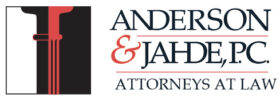If you are a partner in a partnership, you should be aware there are new rules starting with partnership taxable years that begin after December 31, 2017. The new regime replaces the provisions of the Internal Revenue Code known as the TEFRA procedures, which still govern partnership audits for taxable years beginning before December 31, 2017, and may also be applicable for audits by states that have not adopted the new federal procedures. The new rules cover all partnerships, including limited liability companies (LLCs) that are treated as partnerships for tax purposes (collectively referred to as “partnerships”) unless certain actions are taken, as described below.
Assessments Collected at Entity Level (But There Are Ways to Avoid This).
Among the most significant changes is that any taxes and penalties resulting from a partnership audit are assessed and collected at the entity level, which means the partnership itself (rather than the partners) is liable for the assessment and payment of the taxes. Tax is computed at highest tax rate for individuals or corporations. As a result, the present partnership (i.e. the “adjustment year” partnership) will be liable for any tax deficiencies of the partnership for the year under exam (the “reviewed year”). If the partners in the adjustment and reviewed years are the same, no problem. But if they have changed, there is a mismatch and a resulting unfairness. Consequently, partnerships can avoid the entity-level tax treatment in one of three ways:
- Modification – When the partners have tax rates lower than the highest rates, either because they are in lower brackets or because of the character of the income is taxed at a lower rate, the partnership may take steps through modification to provide the IRS information about specific partners and how they take in items from the partnership account.
- Push Out – A partnership may be eligible to make a “push-out” election to require the affected partners (which may include former partners) to take into account the adjustments and pay any taxes due as a result of those adjustments, provided that the necessary information is provided to the IRS.
- Amended Return by Partners – The entity-level assessment may be reduced if a partner files an amended return for the reviewed year taking into account any adjustments properly allocated to such partner and paying any taxes due as a result of such adjustments.
Eligible Partnerships May Elect Out.
Another way to avoid the new rules is for the partnership to elect out of the new audit regime. It is only available to partnerships with 100 or fewer partners, all of which are eligible partners (i.e., individuals, C corporations, eligible foreign entities, S corporations and estates of deceased partners).
If an eligible partnership elects out of the new regime, the partnership will be subject to the pre-TEFRA audit procedures (not the TEFRA rules) under which the IRS must separately assess any tax deficiency against each partner.
The election out of the new regime must be made on a timely filed federal income tax return of the partnership for each year the election is to be effective. Unlike under TEFRA, small partnerships are not automatically exempt. If a partnership takes no action, the new regime will automatically apply.
Partnership Representative (No Tax Matters Partner Any Longer).
Instead, a person called the “partnership representative” has sole authority to act on behalf of the partnership. All partners are bound by the actions of the partnership representative, and partners have no statutory right to receive notice of or to participate in the partnership-level proceedings. This is a significant change from the TEFRA procedures, under which partners generally retained notification and participation rights in partnership-level proceedings. The partnership representative can be any individual or entity that has a substantial presence in the United States and need not be a partner of the partnership. The designation must be made on each year’s tax return. A designation for one year does not control other years.
